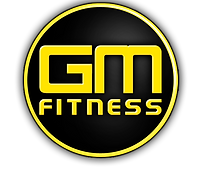Low density fats "Bad fats" LDL
LDL Cholesterol (Bad) When too much LDL (bad) cholesterol circulates in the blood, it can slowly build up in the inner walls of the arteries that feed the heart and brain. Together with other substances, it can form plaque, this is a thick, hard deposit that can narrow the arteries and make them less flexible. This condition is known as atherosclerosis. If a clot forms and blocks a narrowed artery, heart attack or stroke can result.
An easy way to remember your HDL from your LDL cholesterol is to think of a hoes pipe.
Imagine that you have two hoes pipes, the first pipe contains LDL low density lipo proteins, this hoes is running slowly because of its low pressure and contains a gravy like liquid and is dribbling out of the pipe.
The second pipe contains HDL high density lipo protein this is a lovely clear fluid that is under high pressure and is spewing out like a fire-man`s or fire-woman`s hose
Examples Source of LDL

Bad Choices
Biscuits
Crisps
Sweets
Take away
Bad Choices
Sweeteners
Biscuits
Crisps
Red meat
Lamb
pasties
Pies
Fried foods
Butter
Cakes
Sausages
Burgers
Saturated Fats
Then there are bad fats, those apparently artery clogging saturated fats, from meat and dairy products.
An easy way to remember your saturated fats, is to remember these fats are solid at room temperature.
Saturated fats have been shown to directly raise total and LDL (bad) cholesterol levels. Conventional advice has been to avoid them as much as possible.
However, a meta-analysis published in the American Journal of Clinical Nutrition in early 2010 found no link between saturated-fat intake and increased risk of coronary heart disease or cardiovascular disease.
Still, the Harvard School of Public Health, in a study published in March 2010, found that replacing saturated fats with an equal amount of polyunsaturated fats did indeed reduce the risk of coronary heart disease by 19% percent.
Perhaps, then, saturated fats may not be so bad after all, and they are certainly an important source of vitamins and minerals.

Is Coconut Oil Good For You?
some argue that coconut oil and palm fruit oil, which are plant-based sources of saturated fats, may actually be beneficial because their particular fatty-acid make-up means they are metabolised differently in the body.
Coconut oil has a very high melting point so its great too cook with, however data suggests coconut oil is no more healthy than butter or beef dripping.
A whopping 82% per cent of the fat in coconut oil is saturated, which is more than butter 63% per cent, beef fat 50% per cent and pork lard 39% per cent.
Public Health England says men should eat no more than 30g of saturated fat per day, and women no more than 20g.
Good news is that Stearic acid, found in animal products and in some foods such as chocolate, might not be too unhealthy because much of it is converted by the body into oleic acid, a monounsaturated fat. Thus, saturated fats may be more beneficial, or at least more neutral, than we think.
Trans fats are made by a chemical process called partial hydrogenation. Liquid vegetable oil (an otherwise healthy monounsaturated fat) is packed with hydrogen atoms and converted into a solid fat.
This made what seemed an ideal fat for the food industry to work with because of its high melting point, its creamy, smooth texture and its re-usability in deep-fat frying.
Hope you found this article Helpful:
Please subscribe: Here
Get Motivated
https://www.gm-fitness.co.uk/
Author: GM-FITNESS
#gmfitnesslivethefitlife #gm-fitness #getmotivated #gmf
GM-FITNESS
https://www.gm-fitness.co.uk/

Author: Gareth Myles
